De-Healthification of Palestine with Layth Malhis
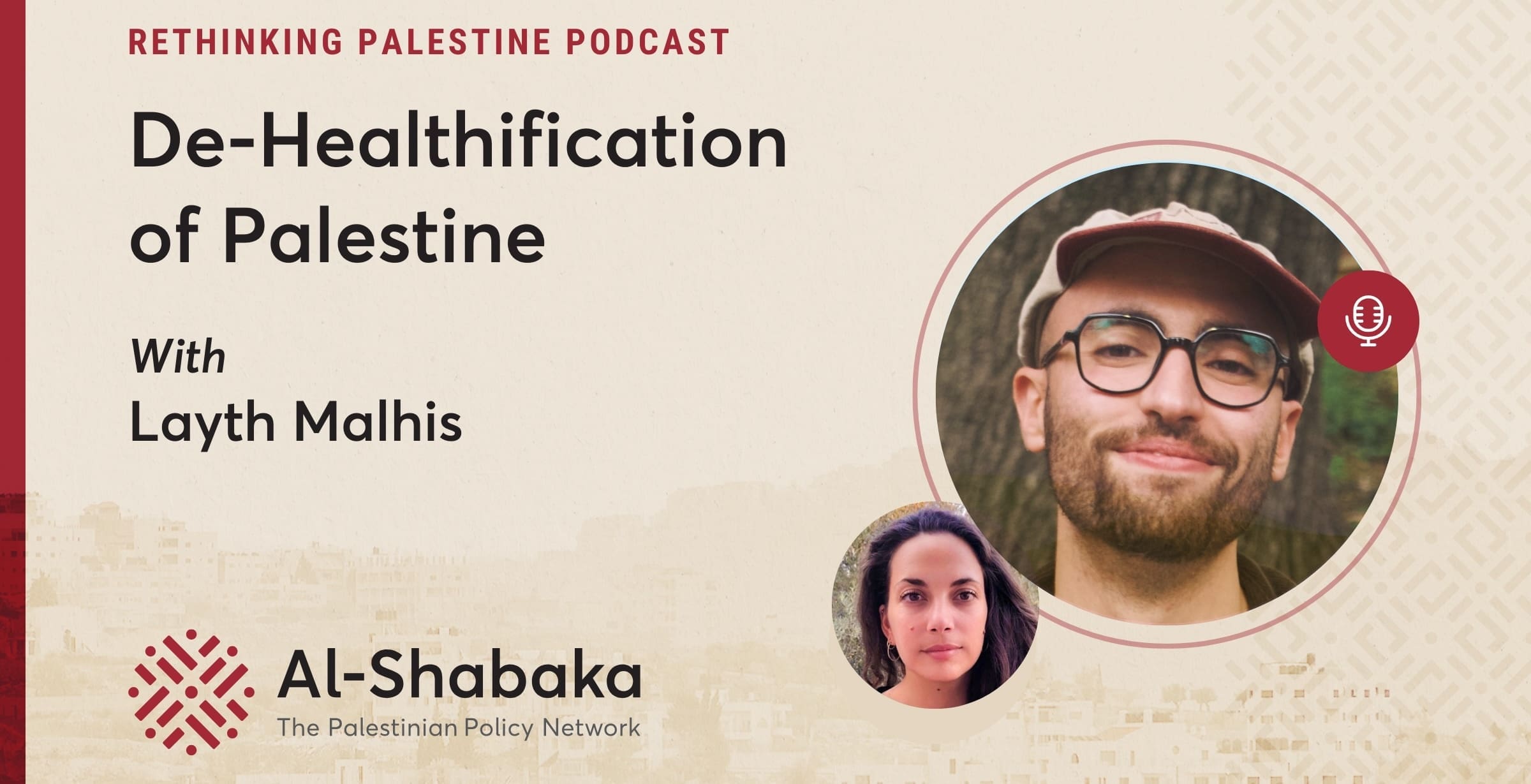
The transcript will be uploaded shortly…
De-Healthification: Israel’s Engineered Collapse of Palestinian Life
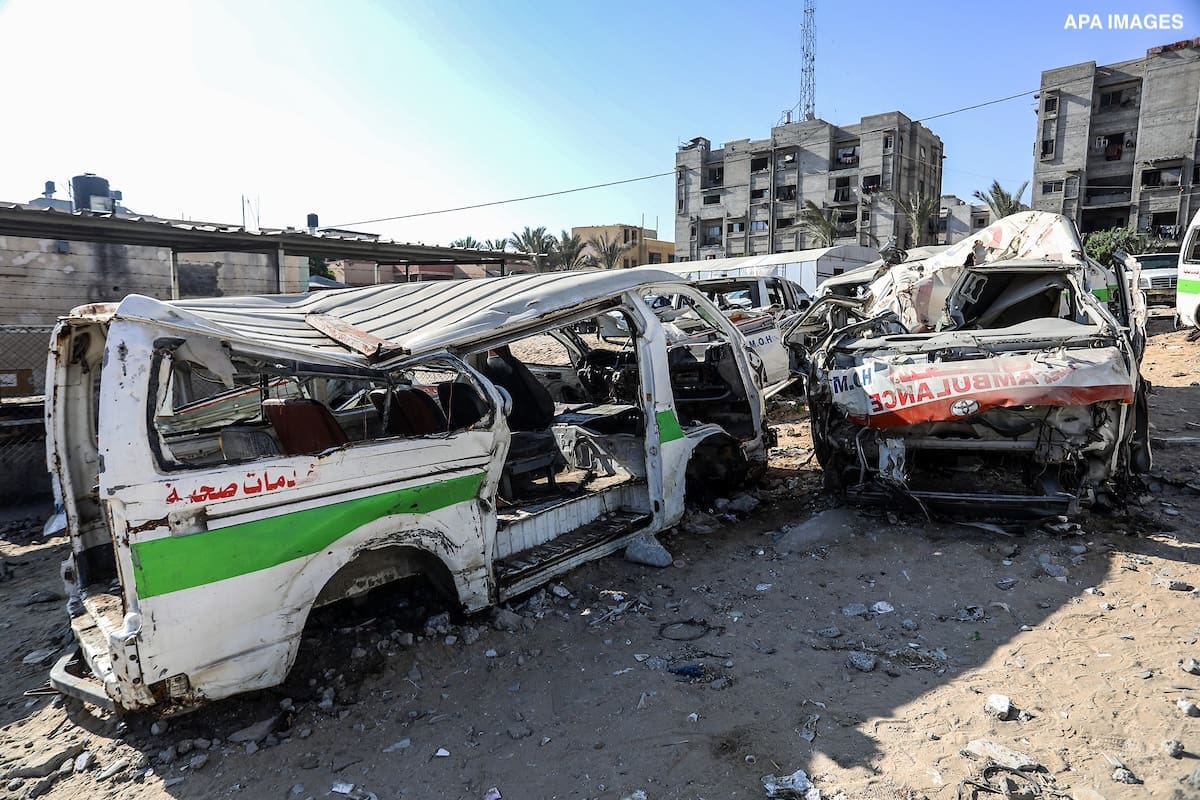
Introduction Since October 2023, Israel’s genocidal military campaign in Gaza has led to the collapse of nearly every pillar of the territory’s healthcare system. The Israeli occupation forces bombed hospitals, killed medical personnel, obstructed humanitarian convoys, and decimated critical infrastructure. Major human rights organizations have documented that the destruction of healthcare in Gaza is systematic […]
The World Radicalized by the Gaza Genocide
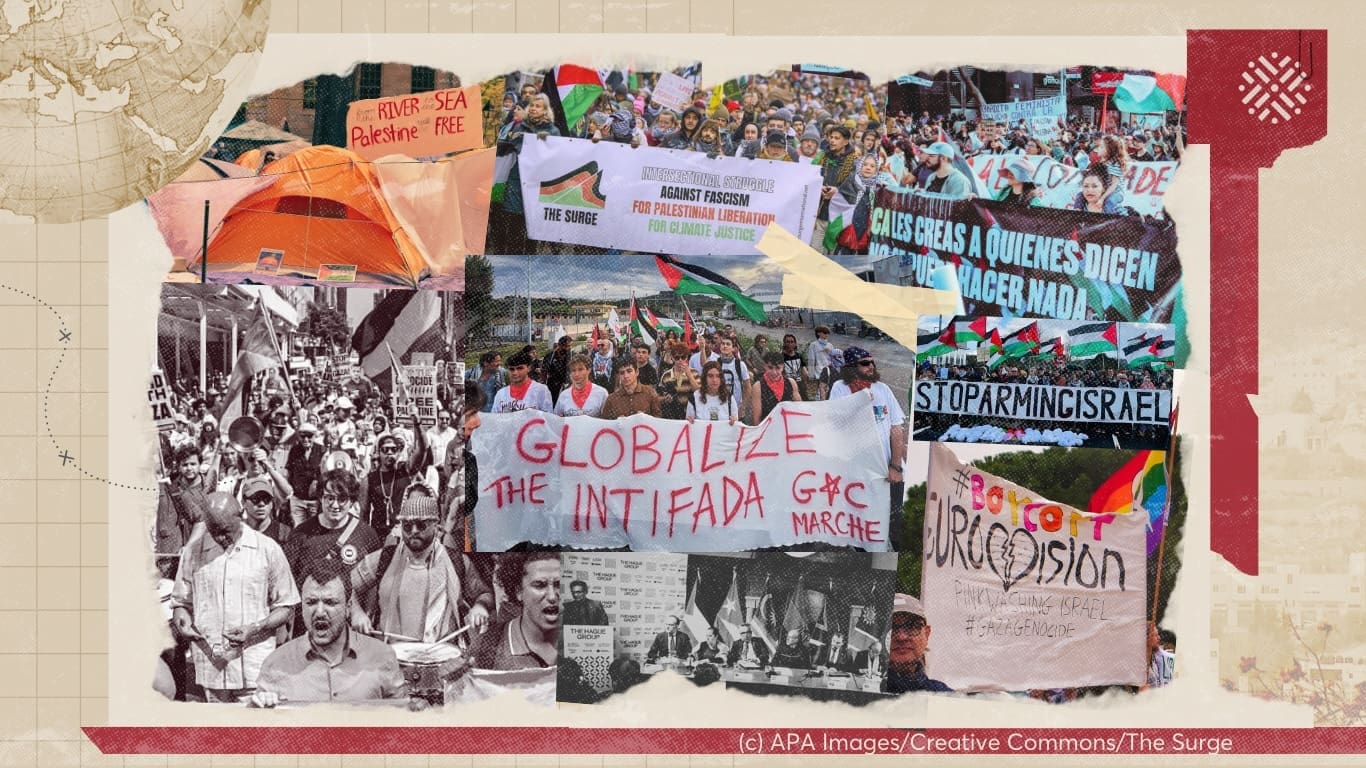
This commentary is based on Tareq Baconi’s contributions at an October 2025 panel event with Novara Media. The recording may be viewed in full here. Introduction October 7, 2023, marked a paradigmatic rupture in how Palestine is discussed and imagined. Until that moment, international discourse had been trapped in the vocabulary of statehood and peace […]
Global March to Gaza: Lessons from Egypt with Engy Sarhan
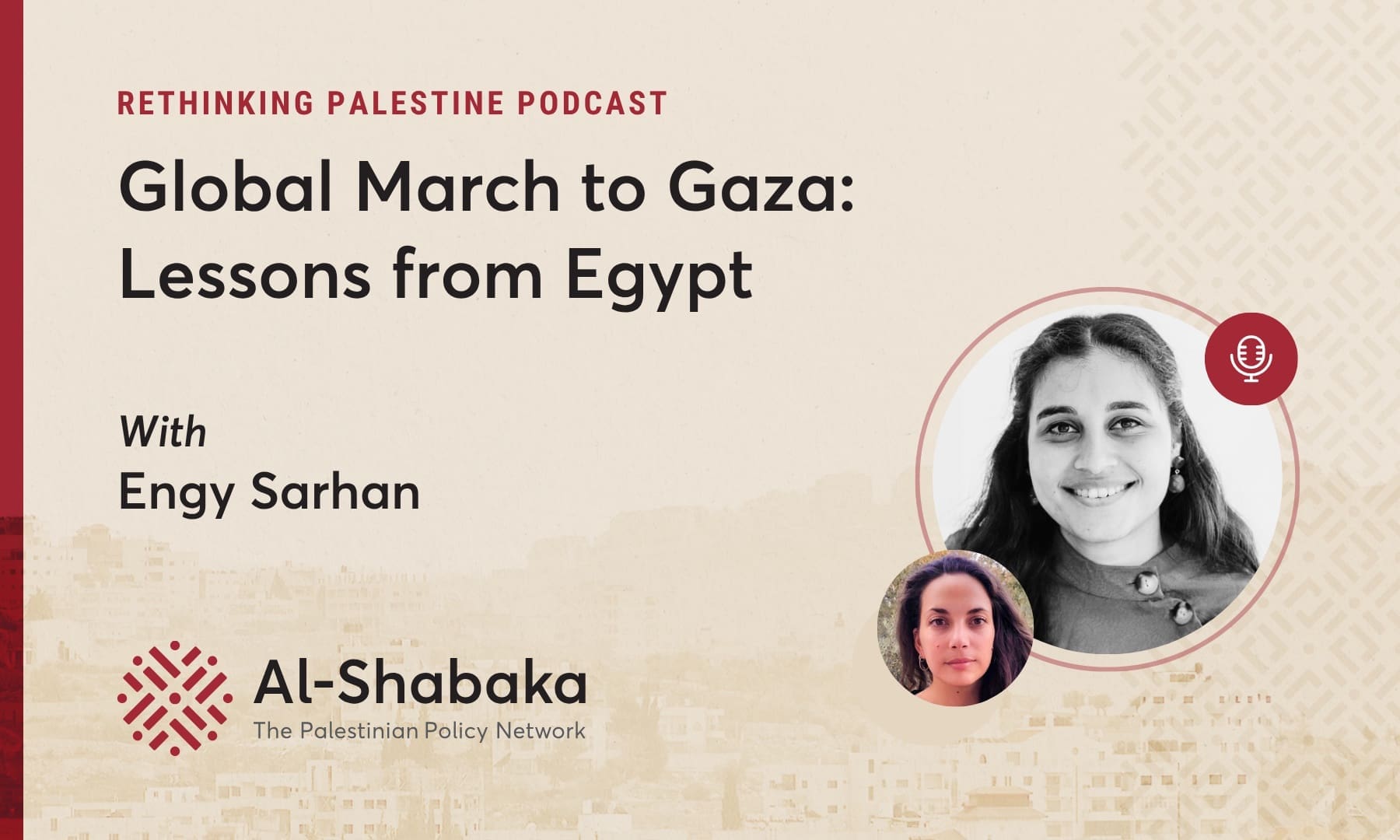
The transcript below has been lightly edited for brevity and clarity. Engy Sarhan 0:00 I think when we say Gaza is our moral compass, it’s not really an empty slogan. And I think one can always ask, is the action that I’m doing centering the dignity of the Palestinians? I think there’s a responsibility in […]
Israel’s War on Palestinian Journalists
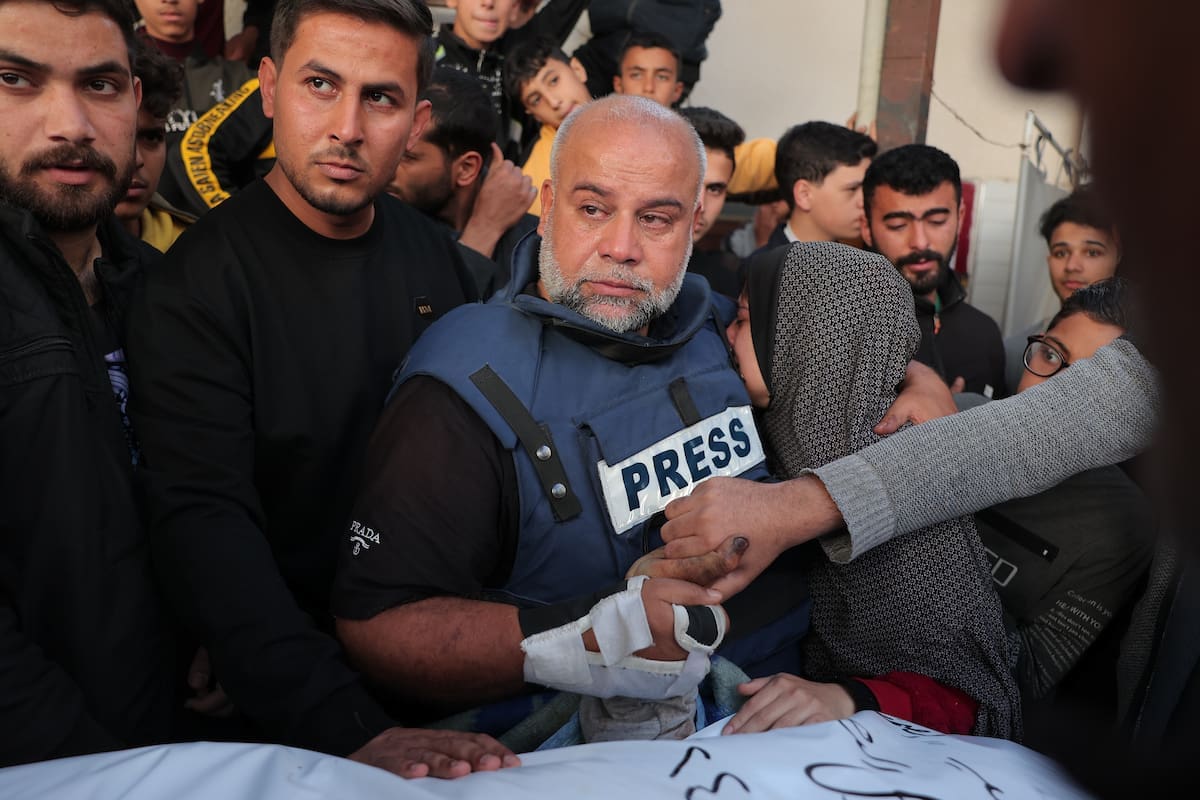
Over the last 18 months, Israeli forces have killed more than 230 journalists, primarily in Gaza but also in Lebanon and Syria. To put this in perspective, more journalists have been killed during Israel’s ongoing genocide than in both world wars, the US invasions of Vietnam and Afghanistan, and the war in Ukraine combined. All […]
Countering Attacks on the Palestine Movement in Europe with Agnese Valenti
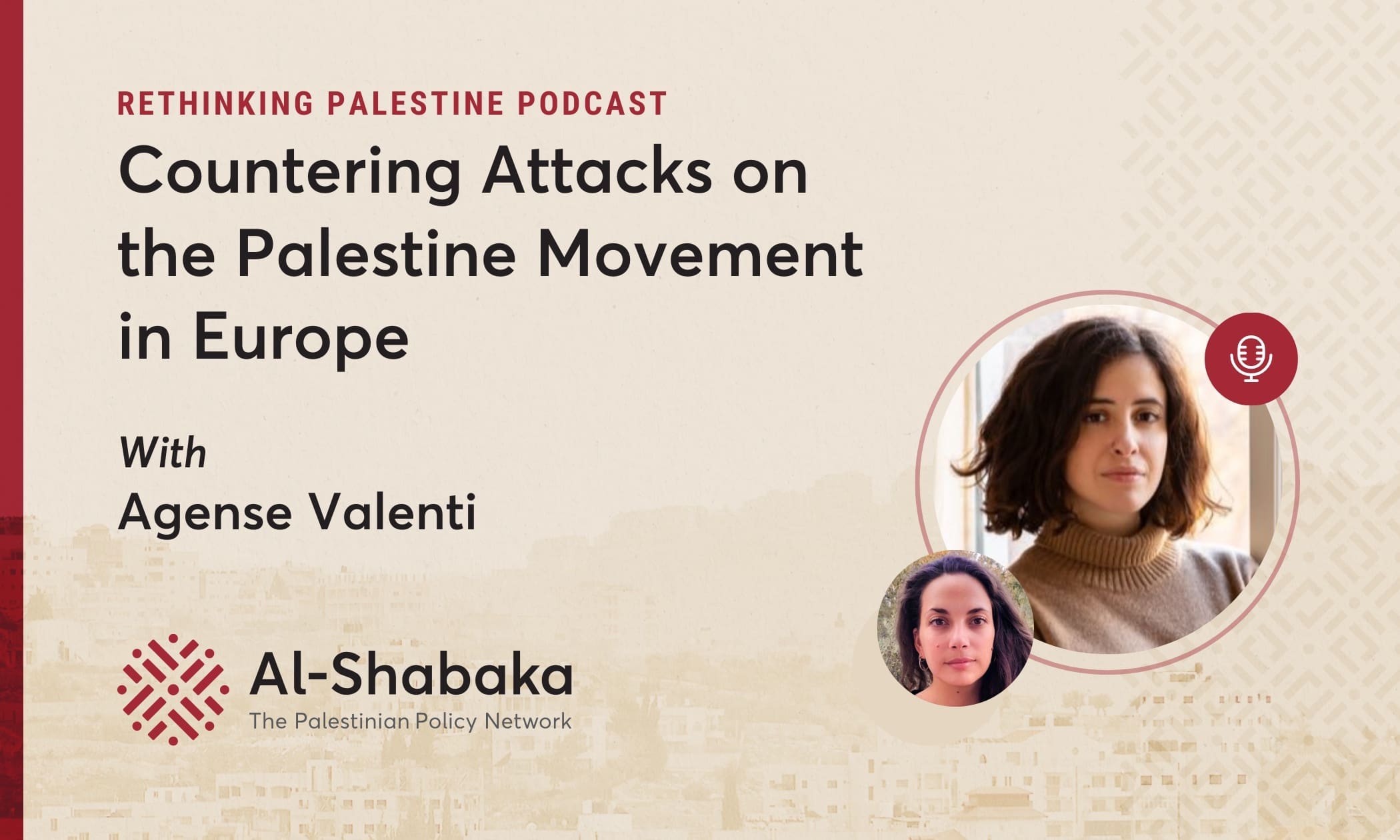
The transcript below has been lightly edited for brevity and clarity. Agnese Valenti 0:00 All the Palestinian civil society organizations are doing an amazing job, but the problem is the pro-Israeli lobby groups and the network organized by the state of Israel. Because they are not independent, but start by exposing that network, they are […]
Project Esther: Suppressing Palestinian Solidarity in the US
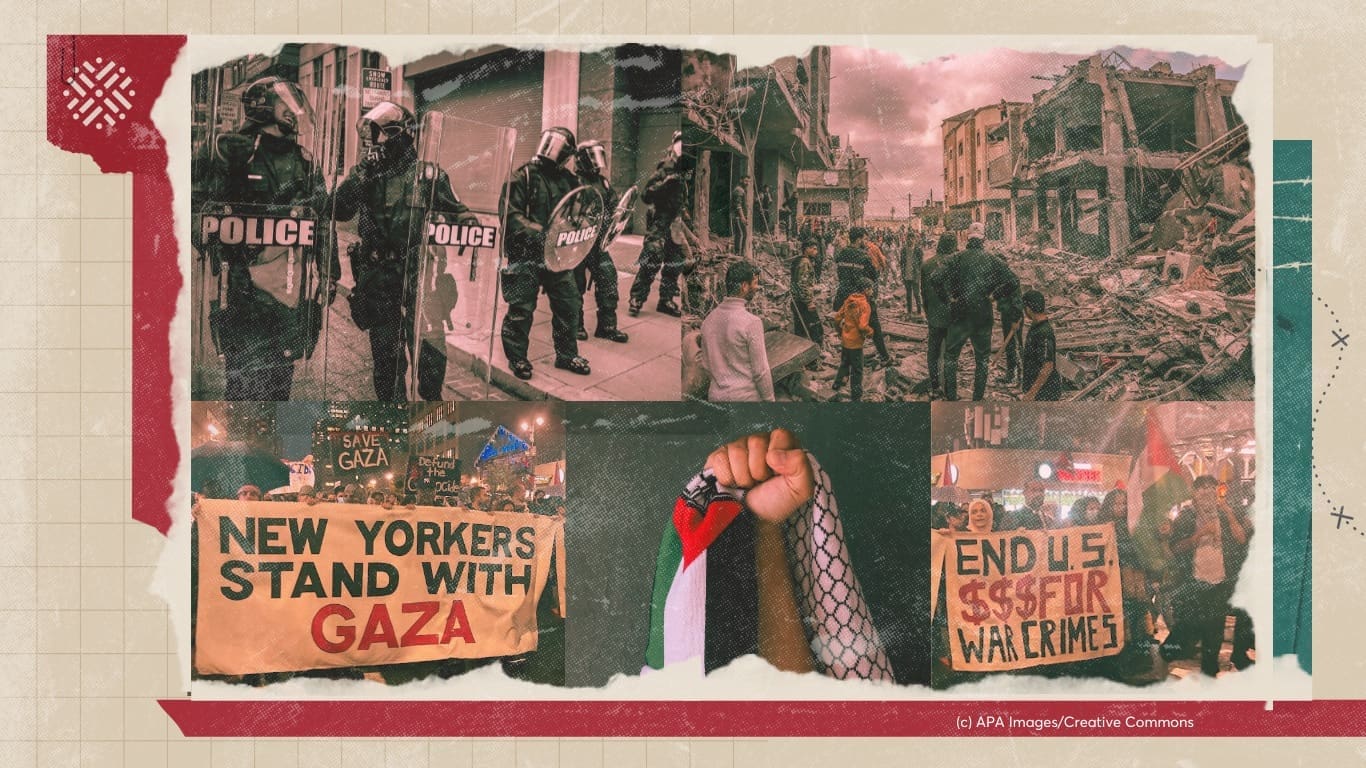
Introduction On October 7, 2024, marking one year since Hamas’s Al-Aqsa Flood operation, the conservative DC-based Heritage Foundation introduced Project Esther as their latest and most brazen effort yet to crush Palestinian solidarity. Framed as an initiative to combat antisemitism, Project Esther exclusively targets voices and groups critical of the Israeli regime. It calls for […]
Gaza’s Infrastructure: Israel’s Assault & Paths to Rebuild
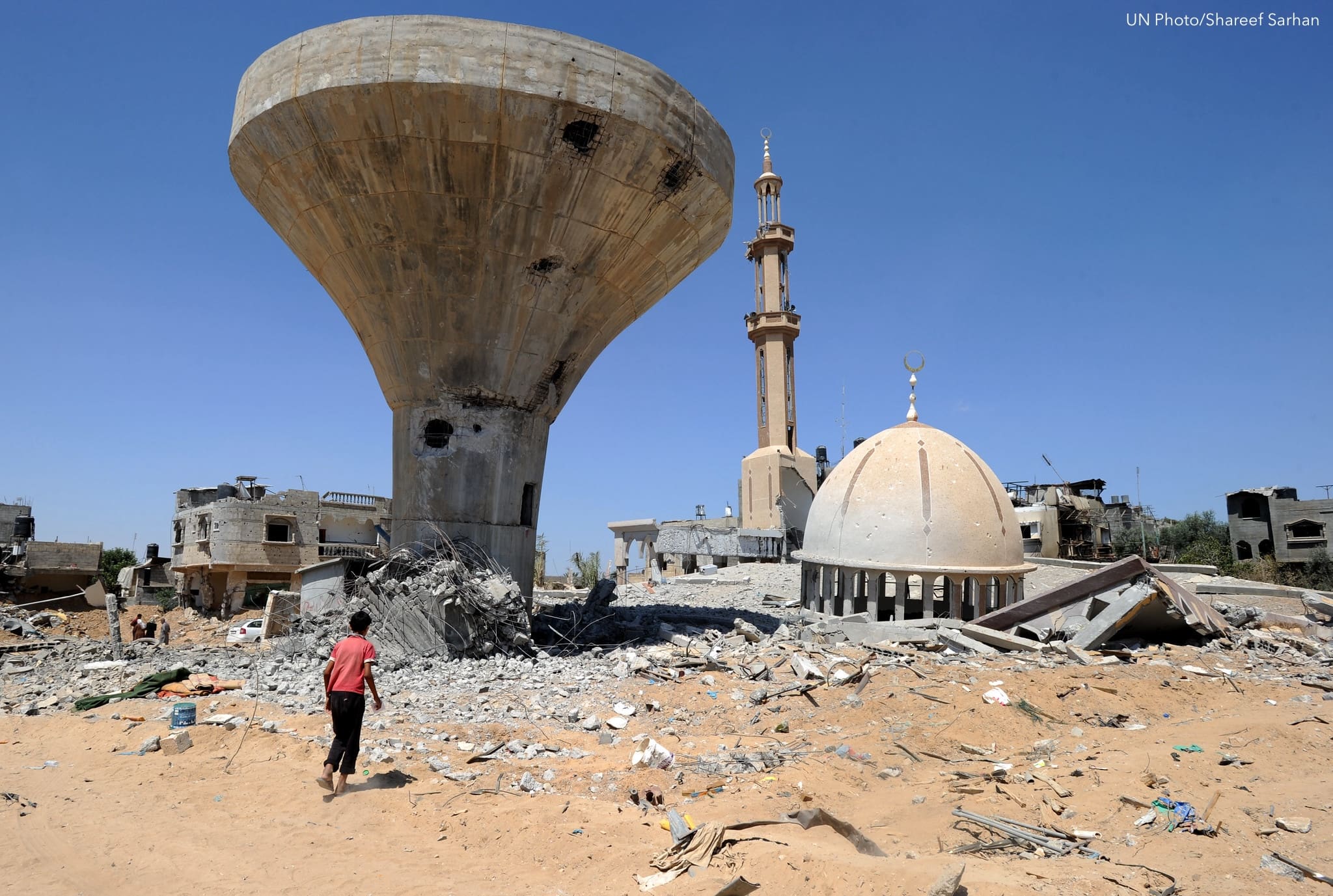
For over a year, Israel’s ongoing genocidal campaign has left Gaza devastated, with entire neighborhoods reduced to rubble and critical infrastructure decimated. Israeli forces have targeted and destroyed hospitals, schools, power plants, and water treatment facilities alike, not as collateral damage but as deliberate acts of collective punishment specifically designed to render Gaza uninhabitable. Amid […]
Focus On: Global Solidarity with Palestine
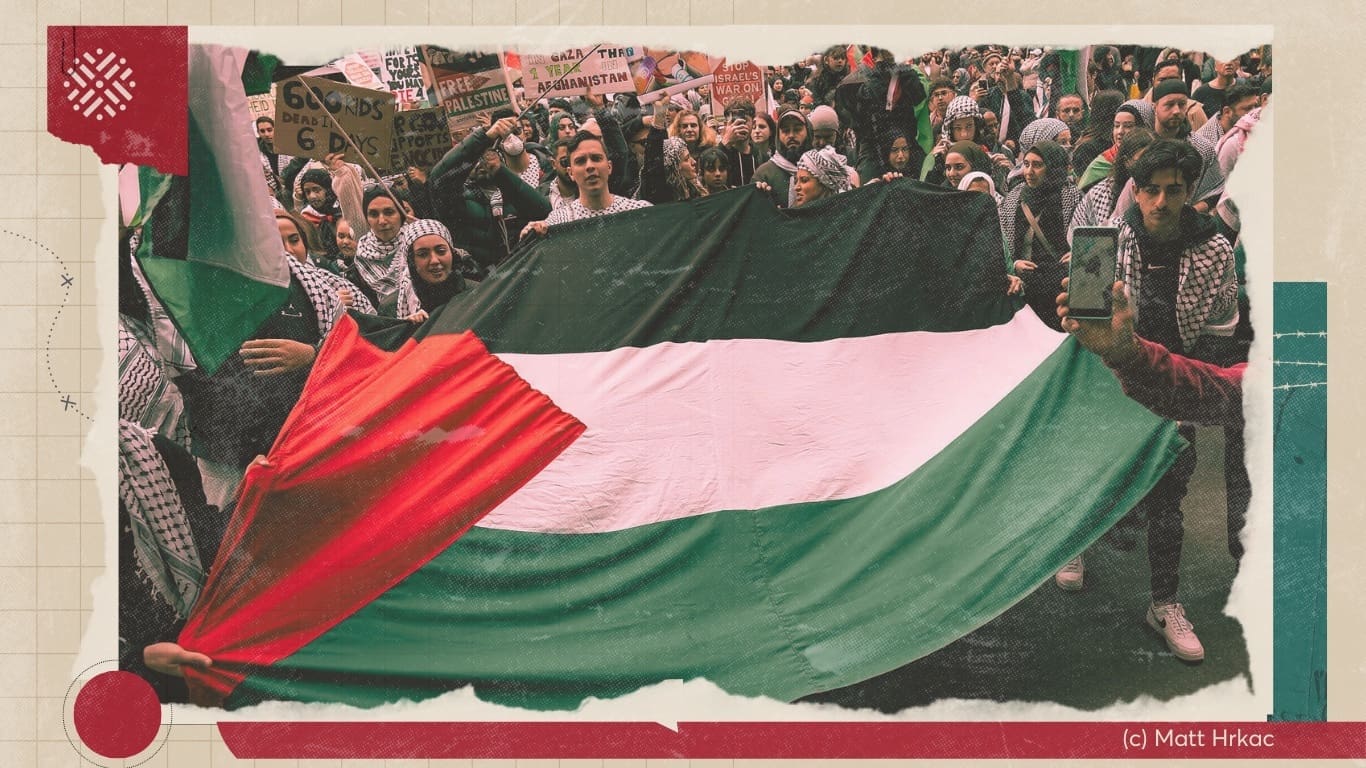
Introduction As the US and its allies lead a sweeping assault on the global legal order to shield the Israeli regime from accountability for genocide, international outrage has sparked an extraordinary wave of pro-Palestine solidarity and organizing. Millions have taken to the streets in a broad-based protest movement that marks a profound shift in public […]






